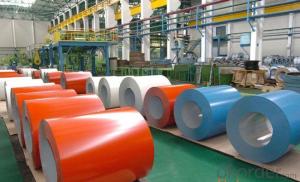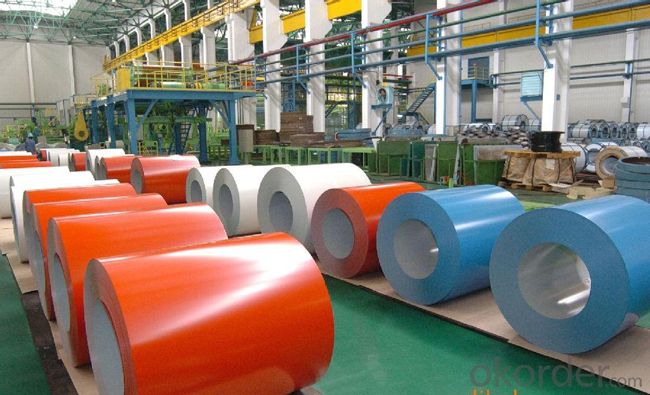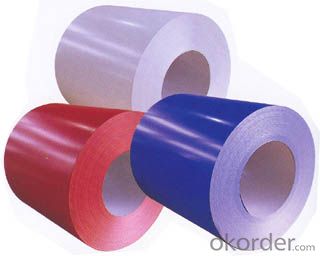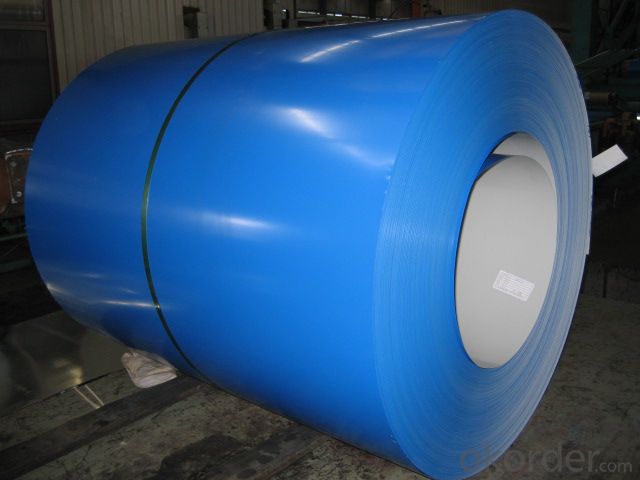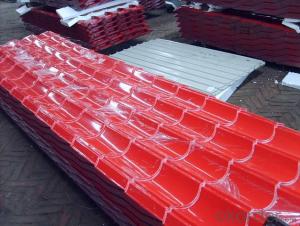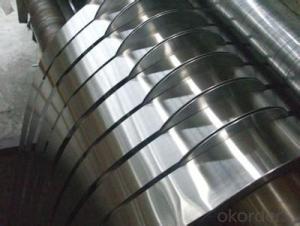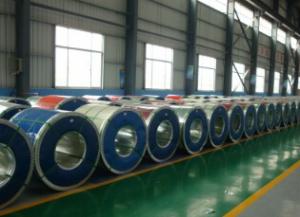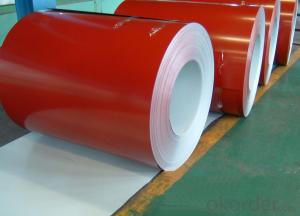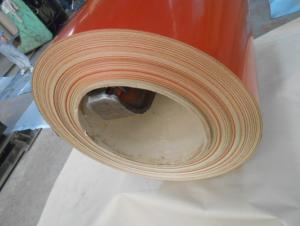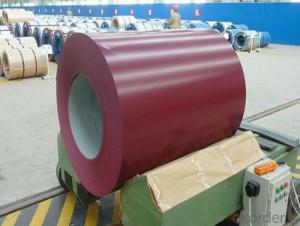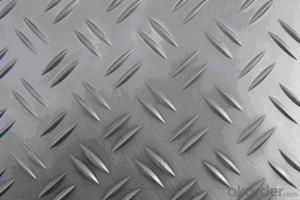All kind of color coil and sheet
- Loading Port:
- China Main Port
- Payment Terms:
- TT OR LC
- Min Order Qty:
- -
- Supply Capability:
- -
OKorder Service Pledge
OKorder Financial Service
You Might Also Like
Product Features
super weather resistance and durability , also the pattern is capable to bring about plenty of effects of multilayer, parallax and 3D effect.
Application
It is the perfect building material in construction for making steel roofing/suspended ceiling, office partition, Sandwich panel, insulation panel, corrugate sheet, facade wall,rolling doors, T-bar, garage door and shutters etc.
Structure of Cross-section
Items | Thickness | Type | Features |
Protection Film | 50μm | polyethylene | Protecting from scratches and |
Finished Coat | 10μm | PVDF | Protecting printed layer and enhances |
Print | ≦1μm | Ink, Polyester | Various printing patterns,3 colors overprint |
Top Coat | 20μm | Polyester Fluorine | Chemical resistance, formability and |
Primer Coat | 5μm | Polyester | workability, corrosion resistance and |
Chemical Treatment | ≦1μm | Chromate | Good adhesion and corrosion resistance |
Substrate | 0.2-1.2mm | GI.GL.AL | GI.GL,AL |
Chemical Treatment | ≦1μm | Chromate | Good adhesion and corrosion resistance |
Back Coat | 5μm | Epoxy | corrosion resistance and adhesion to the |
- Q: I'm building a single-speed commuter bike and I was wondering what the advantages and disadvantages of steel and alloy wheels are. Any experts out there who can give me specifics for each kind?
- Steel wheels are at the lowest cost and quality end of bike equipment. If you're even thinking of buying a cheapo bike with steel wheels - don't. Steel wheels are poor quality and therefore weaker than an OK alum rim. They are heavier, braking isn't as good, won't stay true as long. Alum wheels are extruded, not cast, and are better in every way. They cost more is the only down side.
- Q: How are steel coils used in the manufacturing of fasteners?
- Steel coils are commonly used in the manufacturing of fasteners because they provide a cost-effective and efficient way to produce large quantities of fasteners. The steel coils are unwound and then fed into machines that cut, shape, and thread the steel to create various types of fasteners such as screws, bolts, and nails. The high strength and durability of steel make it an ideal material for fasteners, ensuring secure and reliable connections in a wide range of applications.
- Q: Can steel coils be welded?
- Yes, steel coils can be welded. Welding is a common method used to join steel coils together or to other steel components, allowing for the formation of strong and durable connections in various applications.
- Q: What are the factors influencing the price of steel coils?
- The factors influencing the price of steel coils include the cost of raw materials, such as iron ore and coal, as well as energy prices, transportation costs, labor wages, and market demand. Additionally, exchange rates, trade policies, government regulations, and global economic conditions can also impact steel coil prices.
- Q: How are steel coils used in the manufacturing of elevator components?
- Steel coils are used in the manufacturing of elevator components as they provide the necessary strength and durability required for various parts such as brackets, frames, and shafts. The coils are shaped, cut, and welded to create the desired elevator components, ensuring a sturdy and reliable structure that can withstand heavy loads and constant usage.
- Q: In pounds per square inch what is the tensile strength of strong steel?
- It is refereed to the ultimate tensile strength which is the point at which the specimen of steel fail (rapture) when subjected to a force,measured by unit force divided by cross section of steel.
- Q: How do steel coil manufacturers meet customer specifications?
- Customer specifications are met by steel coil manufacturers through a comprehensive and systematic approach that involves various stages and processes. The following are some key steps taken: 1. Thoroughly understanding customer requirements: The process begins with manufacturers gaining a complete understanding of their customers' specific requirements. This includes determining the desired dimensions, tolerances, mechanical properties, surface finish, and any other specific characteristics needed. 2. Selecting the appropriate materials: Based on the customer's requirements, manufacturers carefully select the suitable type and grade of steel to meet the specifications. Factors considered include strength, corrosion resistance, formability, and cost-effectiveness. 3. Planning production: Manufacturers meticulously plan their production processes to ensure that customer specifications are met. This involves determining the appropriate manufacturing techniques, equipment, and resources required. 4. Processing the coils: Steel coils undergo various stages such as hot rolling, cold rolling, annealing, pickling, and coating, depending on the customer's specifications. Each step is meticulously controlled to achieve the desired properties and dimensions. 5. Implementing strict quality control: Throughout the manufacturing process, strict quality control measures are enforced to ensure that the coils meet the customer's specifications. This includes regular inspections, testing, and compliance with industry standards. 6. Offering customization and flexibility: Steel coil manufacturers frequently provide customization options to meet specific customer needs. They have the capability to adjust the thickness, width, and length of the coils to match the desired specifications. 7. Promoting effective communication and collaboration: Effective communication and collaboration between the manufacturer and the customer are crucial in meeting specifications. Manufacturers work closely with their customers to address any concerns or modifications required during the manufacturing process. 8. Providing detailed documentation and certification: Once the steel coils are manufactured, manufacturers supply comprehensive documentation and certifications to ensure traceability and compliance with customer specifications. This includes test reports, material certificates, and any other necessary documentation. By adhering to these steps, steel coil manufacturers can consistently meet customer specifications, guaranteeing that the final product aligns with the desired requirements and quality standards.
- Q: Steel steps steel guard rail steel chair. You see where I'm going with this.
- TNA stealing ideas from WWE....
- Q: How are steel coils inspected for defects after recoiling?
- Steel coils are inspected for defects after recoiling by conducting visual inspections, using non-destructive testing methods such as ultrasonic testing or magnetic particle inspection, and conducting measurements to check for dimensional accuracy and straightness.
- Q: What are the disadvantages of using steel coils?
- One disadvantage of using steel coils is their high weight and bulkiness, which can make transportation and handling more difficult and costly. Additionally, steel coils are prone to rust and corrosion, requiring proper maintenance and protective coatings to prevent deterioration. Lastly, steel coils can be expensive to produce and purchase, making them less cost-effective compared to alternative materials in certain applications.
Send your message to us
All kind of color coil and sheet
- Loading Port:
- China Main Port
- Payment Terms:
- TT OR LC
- Min Order Qty:
- -
- Supply Capability:
- -
OKorder Service Pledge
OKorder Financial Service
Similar products
Hot products
Hot Searches
Related keywords
